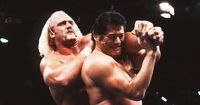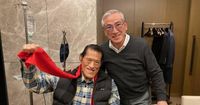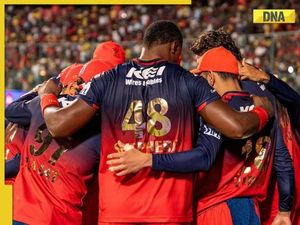In a tale that intertwines the worlds of wrestling and cinema, the marriage of Antonio Inoki to actress Mitsuko Baisho stands out as a captivating narrative within Japan’s cultural history. It was the year 1971 when Inoki’s brother received the surprising news of this union. Known for his role as the hero in the beloved film series 'Otoko wa Tsuraiyo,' Baisho was not just an actress but a notable figure in the Japanese entertainment industry. Inoki, already an emerging star in the wrestling scene, had left behind his first marriage to Diana, and found love again with Baisho through mutual connections. Their relationship, introduced by Toon Haru, a pioneer in Japanese pro wrestling, sparked intrigue that resonated throughout media outlets at the time.
Despite Inoki’s stardom, the announcement focused heavily on Baisho’s fame. Instead of the headlines reading, 'Inoki marries,' it was often emphasized how 'Mitsuko Baisho is marrying Antonio Inoki,' showcasing the disparity between their public recognition in their respective fields. While Inoki held a significant position as a revered wrestler, his celebrity status was dwarfed by that of his wife-to-be.
Inoki’s brother, who had relocated to Brazil at the age of nine and had immersed himself in Portuguese during his fourteen years there, also had a plan of his own. He envisioned returning to Japan, attending Takushoku University—Inoki's alma mater—to study Japanese and karate. This choice was influenced by advice from Antonio Inoki, who encouraged his sibling to expand his connections and enhance his linguistic skills. Yet, just as he prepared his future, his brother’s wedding plans interjected into his life.
As global challenges arose with the COVID-19 pandemic, Antonio Inoki faced his own personal struggles. Reports emerged that he was confined to a small room, unable to engage with visitors due to health concerns. Observations made it clear that he felt neglected and uncherished, stating, “I feel like I’m not being treated like a human.” With rich memories of his athletically vibrant past, the dismal treatment he reported was heartfelt and concerning for those who knew his former brilliance. His brother, witnessing this decline, expressed a commitment to find better living arrangements for Inoki.
Three years passed since the death of influential figure Hashimoto, and the psychological impacts on Inoki were significant. The feelings of dignity loss due to isolation sparked a drive within his brother to act. As he sought to understand the treatment of his brother, he was taken aback by the notion that Inoki’s care lacked respect and warmth. “You have to treat people with dignity,” he remarked, sensing urgency in making a change for Inoki’s well-being, a sentiment that brought forth an emotional conversation about his brother’s future.
Meanwhile, a reflection on the past surfaced with recollections of a notable incident in wrestling history: Inoki's infamous fainting episode during the first IWGP final against Hulk Hogan. His brother recounted the dramatic moment that turned into a medical emergency requiring immediate attention. As he was being moved from the examination room, Inoki quietly expressed his desire to return home, against medical advice. Surprisingly, a doctor approved his request, stating he could return home but needed to remain calm and communicate any issues.
This unexpected discharge led to operatives secretly transporting Inoki and Baisho to their home in Daikanyama. The brother, skilled in evasion techniques developed during his time in Brazil, navigated their getaway cleverly, noting that even as they were pursued by a vehicle likely belonging to the press, he managed to lose them effortlessly.
Not long after this covert operation, the nation would stir with unconfirmed reports about Inoki’s status. National newspapers, not typically focused on the wrestling world, published articles that hinted at an “ambulance ride,” sparking public intrigue about his condition and career.
Inoki’s saga reflects not just the complexities surrounding stardom—whether in sports or entertainment—but also highlights the familial bonds and ethical obligations we bear towards each other. As his brother navigated his reality and struggles, he emphasized the importance of standing by him and ensuring his dignity remains intact.
Throughout these intertwined stories of love, fame, familial loyalty, and respect, we see a portrait of a man who dedicated his life to entertainment and sports, while also confronting life's unforeseen challenges. Inoki’s journey, punctuated by his marriage to Mitsuko Baisho, serves as a reminder of how relationships can transcend personal and professional boundaries, offering support in times of need.
The challenges ahead are undoubtedly formidable, yet the strength drawn from familial ties and dedication to dignity shines through, promising a continued dialogue about respect and treatment for those who have made an indelible mark on culture and society.






